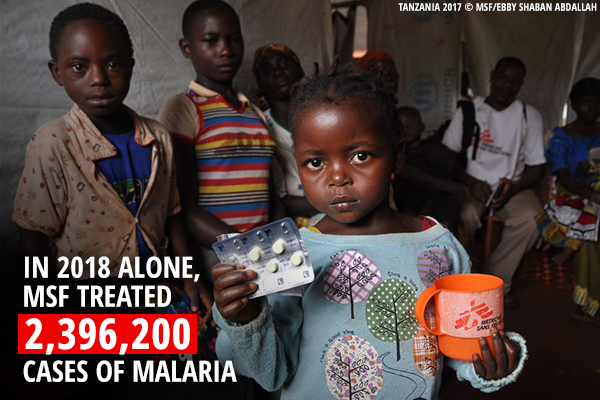|
This December marks 20 years since Doctors Without Borders/Médecins Sans Frontières (MSF) was awarded the Nobel Peace Prize. It was an incredible honor, and the funding that came with it allowed us to expand the Access Campaign, designed to bring down barriers that keep people from the treatment they need. We were able to make treatment more accessible and increase our critical research on neglected diseases like sleeping sickness, Chagas disease, and more. In the months leading up to this anniversary, we will be looking back on 20 years of innovative treatments and programs that have saved lives all around the world—and we hope you’ll join us on this journey.
Over the last two decades, we’ve continued to work tirelessly to embody the values that the Nobel Peace Prize stands for and lead the way in lifesaving innovations on a global scale. This month, we’re highlighting the advancements we helped make in global malaria treatment:

Malaria is the world’s most deadly parasite and infects more than 200 million people every year, that’s why we’ve made it a priority to develop innovative prevention and treatment techniques. MSF started using artemisinin-based combination therapy (ACT) to treat malaria in Thailand in 1996, and in 2002, when research showed people in many countries were resistant to traditional antimalarial drugs, we started using ACT in all our projects. In 2006, thanks in large part to our work and research, the World Health Organization changed its guidelines on malaria treatment, calling for ACT to be integrated into national protocols, forever changing the way we treat malaria around the world.
Join us in celebrating 20 years since MSF was awarded the Nobel Peace Prize: Click here to learn more about the incredible advancements and innovations we’ve brought to the global community in the last 20 years.
Thank you for celebrating this anniversary with us. It’s because of our generous supporters that we are able to provide medical treatment where it’s needed most.
Doctors Without Borders
|